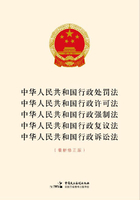This disposes of the second working period. A product value of £600is in circulation and will return at the close of the 15th week. At the same time, £300, the amount of the original capital II, are set free and are able to function in the first half of the following working period, that is to say, in the 13th to 15th week. After the lapse of these weeks the £600 return; £300 of them suffice for the remainder of the working period, and £300 remain for the following working period.
The thing therefore works as follows:
First period of turnover: 1st-9th week. 1st working period: 1st-6th week. Capital I, £600, performs its function. 1st period of circulation: 7th-9th week. End of 9th week, £600 return. Second period of turnover: 7th-15th week. 2nd working period: 7th-12th week.
First half: 7th-9th week. Capital II, £300, performs its function.
End of 9th week, £600 return in money-form (capital I).
Second half: 10th-12th week. £300 of capital I perform their function. The other £300 of capital I remain freed. 2nd period of circulation: 13th-15th week.
End of 15th week, £600 (half taken from capital I, half from capital II) return in the form of money.Third period of turnover; 13-21st week. 3rd working period: 13th-18th week.
First half: 13th-15th week. The freed £300 perform their function.
End of 15th week, £600 return in money-form.
Second half: 16th-18th week, £300 of the returned £600function, the other £300 again remain freed. 3rd period of circulation: 19th-21st week at the close of which £600again return in money-form. In these £600 capital I and capital IIare now indistinguishably fused. And so there are eight full turnover periods of a capital of £600(I: 1st-9th week; II: 7th-15th week; III: 13th-21st; IV: 19th-27th; V:
25th-33rd; VI: 31st-39th; VII: 37th-45th; VIII: 43rd-51st week) to the end of the 51st week. But as the 49th-51st weeks fall within the eighth period of circulation, the £300 of freed capital must step in and keep production going. Thus the turnover at the end of the year is as follows:
£600 have completed their circuit eight times, ****** £4,800.
In addition we have the product of the last 3 weeks (49th-51st), which, however, has completed only one-third of its circuit of 9 weeks, so that in the sum turned over it counts for only one-third of its amount, £100.
If, then, the annual product of 51 weeks is £5,100, the capital turned over is only 4,800 plus 100, or £4,900. The total capital advanced, £900, has therefore been turned over 5 4/9 times, a trifle more than in the first case.
In the present example we assumed a case in which the working time was 2/3 and the circulation time 1/3 of the period of turnover, i.e., the working time was a ****** multiple of the circulation time. The question now is whether capital is likewise set free, in the way shown above, when this assumption is not made.
Let us assume a working of 5 weeks, a circulation time of 4 weeks, and a capital advance of £100 per week.
First period of turnover: 1st-9th week. 1st working period: 1st-5th week. Capital I, or £500, performs its function. 1st circulation period: 6th-9th week. End of 9th week, £500 return in money-form. Second period of turnover: 6th-14th week. 2nd working period: 6th-10th week.
First section: 6th-9th week. Capital II, of £400, performs its function. End of 9th week, capital I of £500 returns in money-form.
Second section: 10th week. £100 of the returned £500 perform their function. The remaining £400 are set free for the following working period. 2nd circulation period: 11th-14th week. End of 14th week. £500 return in money-form. Up to the end of the 14th week (11th-14th), the £400 set free above perform their function; £100 of the £500 then returned fill the requirements of the third working period (11th-15th week) so that £400are once more released for the fourth working period. The same thing is repeated in every working period; at its beginning £40 are ready at hand, sufficing for the first 4 weeks. End of the 4th week, £500return in money-form, only £100 of which are needed for the last week, while the other £400 remain free for the next working period.
Let us further assume a working period of 7 weeks, with a capital I of £700; a circulation period of 2 weeks, with a capital II of £200.
In that case the first period of turnover lasts from the 1st to the 9th week; its first working period from the 1st to the 7th week, with an advance of £700, its first circulation period from the 8th to the 9th week. End of the 9th week, £700 flow back in money-form.
The second period of turnover, from the 8th to the 16th week, contains the second working period of the 8th to the 14th week. The requirements of the 8th and 9th weeks of this period are covered by capital II. End of the 9th week, the above £700 return. Up to the close of this working period (10th-14th week), £500 of this sum are used up; £200remain free for the next working period. The second circulation period lasts from the 15th to the 16th week. End of the 16th week £700 return once more. From now on, the same thing is repeated in every working period.
The need for capital during the first two weeks is covered by the £200set free at the close of the preceding working period; at the close of the second week £700 return; but only 5 weeks remain of the working period, so that it can consume only £500; therefore £200 always remain free for the next working period.















